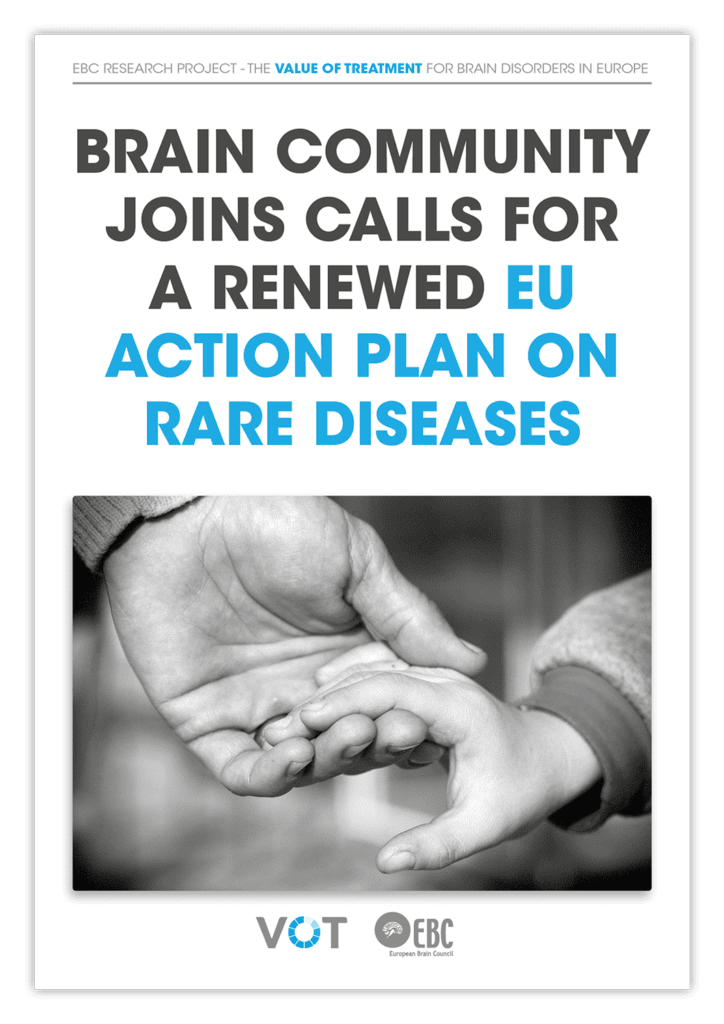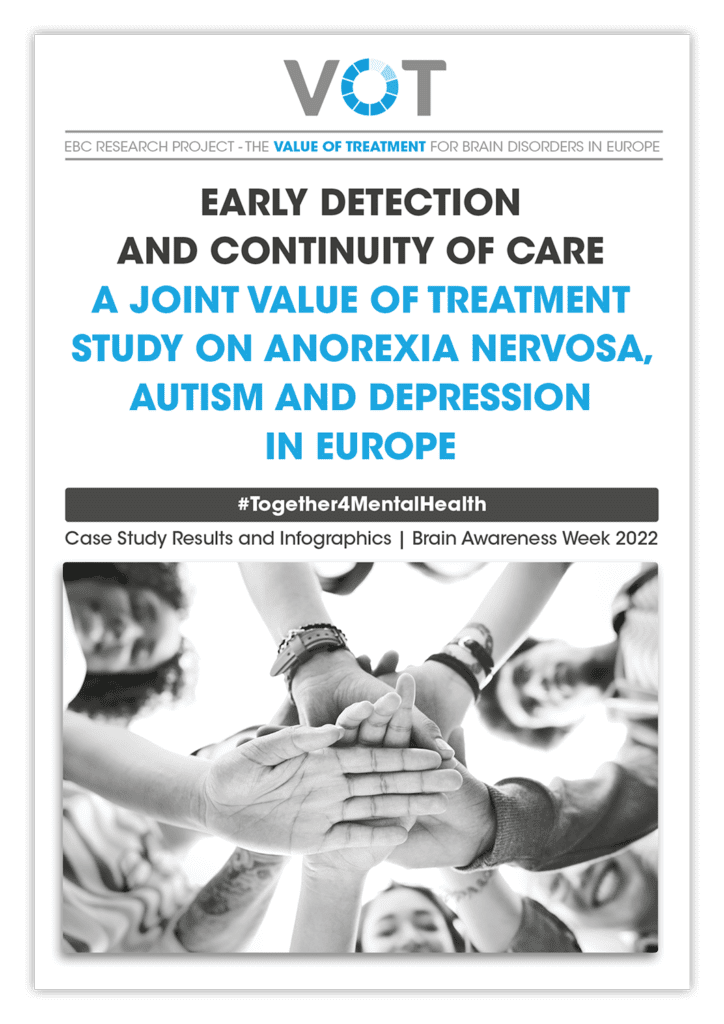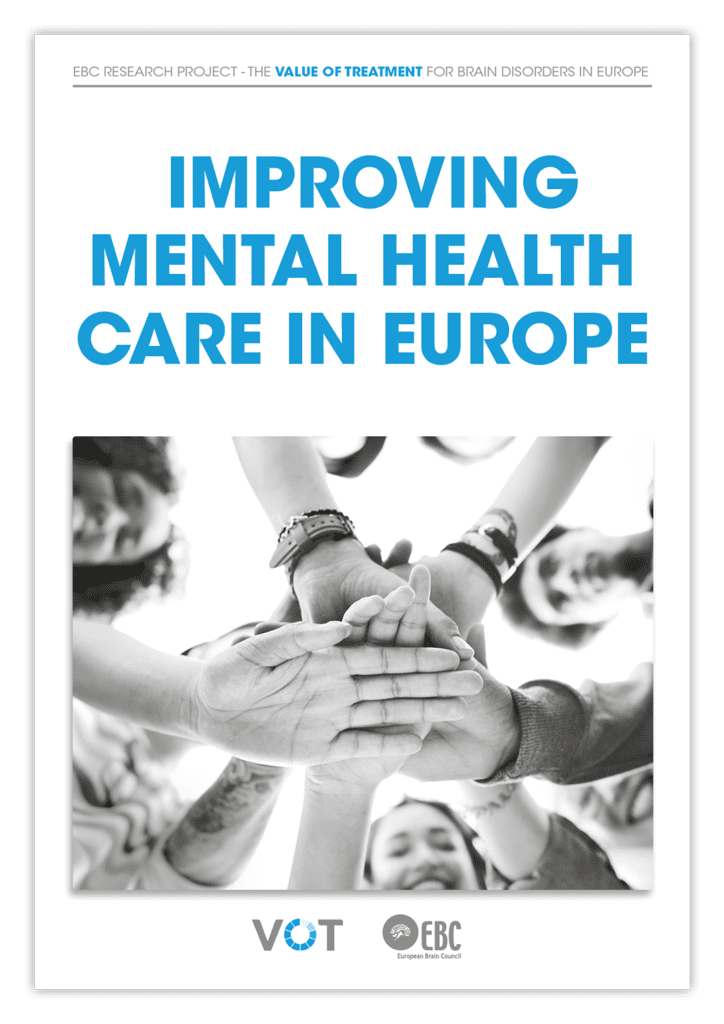On the occasion of Brain Awareness Week 2022, the EBC-led Value of Treatment project – currently in its second round – releases results and calls to action this week.
The Value of Treatment for Brain Disorders (VOT) is a health economics and outcomes research project launched in 2015, with the objective to identify treatment gaps (or barriers to care) along the care pathway and propose solutions to address them; assess health gains and socio-economic impacts resulting from best practice healthcare interventions; and converge data evidence to policy recommendations on how to improve the care pathways. The second round (VOT2) on new therapeutic areas was launched in 2019, focusing on The Value of Early Diagnosis and Coordinated Care for Rare Diseases; and The Value of Early Intervention and Continuity of Care for Mental Disorders.
This week, the working groups release the summaries of case study results, accompanied by calls to action for European policy- and decision-makers:
The Value of Early Diagnosis and Coordinated Care for Rare Brain Diseases
Focused on rare neurological diseases and neurometabolic disorders Ataxia, Dystonia and Phenylketonuria, the study looked at early intervention and explored the benefits of coordinated care through the examination of health services, multidisciplinary care patterns (also addressing comorbidity), patient outcomes and costs. Results provide insight on the value of specialist centres for ataxia and dystonia and metabolic care units for phenylketonuria in terms of diagnosis, management of patients with rare conditions. Results are now available from the individual working groups, accompanied by a Call to Action for a renewed EU Action Plan on Rare Diseases targeting unmet needs:
EBC calls on the European Commission and EU countries to renew a European action plan on rare diseases. This would bring together existing efforts across different legislation and EU programmes under a coherent framework to spearhead change and align EU countries towards the same measurable goals to ultimately improve survival, quality of life and clinical guidelines harmonization.
The Value of Early Intervention and Continuity of Care for Mental Disorders
Focused on mental disorders Anorexia Nervosa, Autism Spectrum Disorder and Major Depressive Disorder, the study looked at early intervention and explored the benefits of improved detection, continuity of care and treatment, and collaborative care patterns (also addressing mental disorders with comorbid medical conditions) on outcomes to patients and costs. Results will provide insight on the value of early intervention to improve children and young people’s mental health and the causes of mental ill-health. Case studies which combine a care pathway analysis followed by an economic evaluation were conducted, applying empirical evidence from different European countries. Results are now available from the individual working groups, accompanied by a Call to Action for an updated European framework for action on mental health, particularly focused on young people:
Study results show there is an urgent need to prioritise early detection, continuity of care, prioritizing brain health and efficient care pathways for youth with mental disorders.





